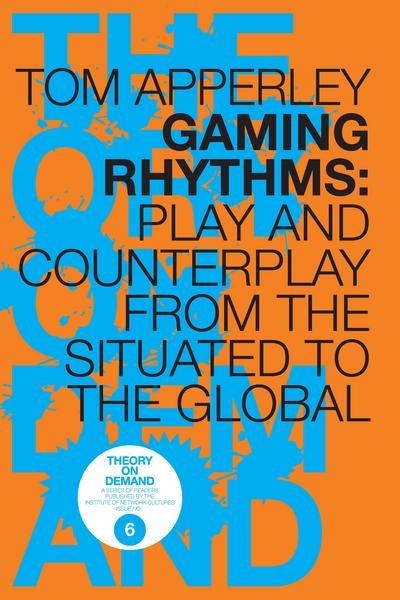
Gaming Rhythms: Play and Counterplay from the Situated to the Global
This book is about digital games, the people who play digital games, and how they play them. It demonstrates how useful and generalizable concepts can be developed from understanding digital games as they are played.
Tag(s): Game Development and Multimedia
Publication date: 31 Dec 2010
ISBN-10: n/a
ISBN-13: 9789081602112
Paperback: 170 pages
Views: 10,552
Type: Book
Publisher: Institute of Network Cultures
License: Creative Commons Attribution-NonCommercial-NoDerivs 3.0 Netherlands
Post time: 08 Dec 2016 10:00:00
Gaming Rhythms: Play and Counterplay from the Situated to the Global
 This book is about digital games, the people who play digital games, and how they play them. It demonstrates how useful and generalizable concepts can be developed from understanding digital games as they are played.
This book is about digital games, the people who play digital games, and how they play them. It demonstrates how useful and generalizable concepts can be developed from understanding digital games as they are played.
Publication date: 31 Dec 2010
ISBN-10: n/a
ISBN-13: 9789081602112
Paperback: 170 pages
Views: 10,552
Document Type: Book
Publisher: Institute of Network Cultures
License: Creative Commons Attribution-NonCommercial-NoDerivs 3.0 Netherlands
Post time: 08 Dec 2016 10:00:00
Share — copy and redistribute the material in any medium or format
The licensor cannot revoke these freedoms as long as you follow the license terms.
Click here to read the full license.
Thomas Apperley wrote:This book is about digital games, the people who play digital games, and how they play them. This poses a large problem: even when discussing one game, each instance of play is different. Combine this with the thousands of digital games, and the millions of players, and it is apparent that the number of individual instances of game play is unfathomably large. What these instantiations do have in common is that they are enacted locally. There are many variables involved in establishing the local—which is always a contested and shifting site—experience of digital game play: drink, food, friends, hardware, light, mobile phones, music, and software. The mundane reality of classes, commitments, deadlines, homework, internet bills, sleep, and work, must also be negotiated. This book aims to demonstrate the significance of nexus of the everyday and the local instantiation of game play as starting point for concept building in the study of digital games. Through case studies of two internet cafés, in Melbourne, Australia and Caracas, Venezuela, this project demonstrates how useful and generalizable concepts can be developed from understanding digital games as they are played. The specific localized experience of play can be connected to a global experience of digital game play, which ameliorates, exacerbates, and rescales the unease about the dynamic between games and players.
More Resources:
Tweet
About The Author(s)
Thomas Apperley is a Senior Lecturer in the School of the Arts & Media at the University of New South Wales, where he convenes the Masters degree in Public Relations and Advertising. An ethnographer that specializes in researching digital media technologies, his previous writing has covered broadband policy, digital games, digital literacies and pedagogies, mobile media, and social inclusion.

Thomas Apperley is a Senior Lecturer in the School of the Arts & Media at the University of New South Wales, where he convenes the Masters degree in Public Relations and Advertising. An ethnographer that specializes in researching digital media technologies, his previous writing has covered broadband policy, digital games, digital literacies and pedagogies, mobile media, and social inclusion.